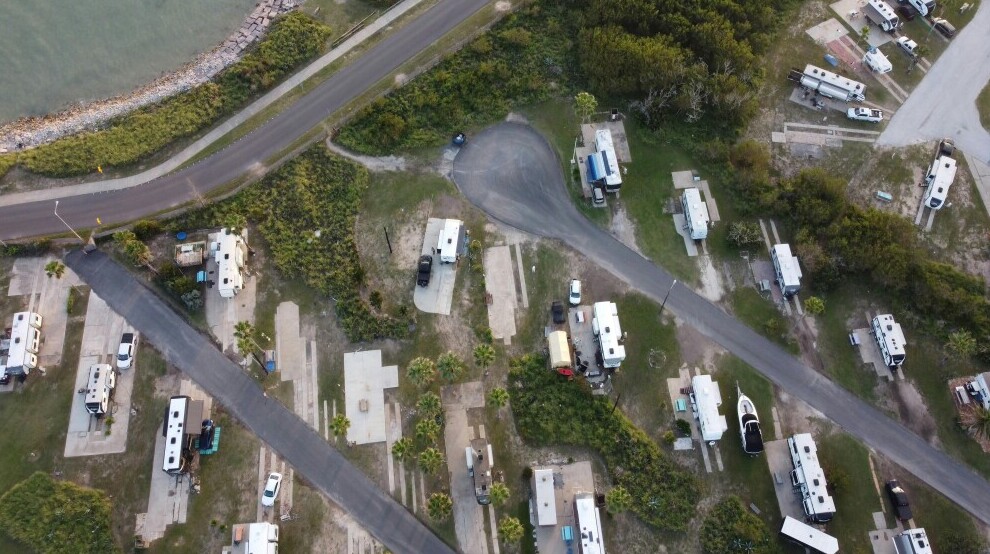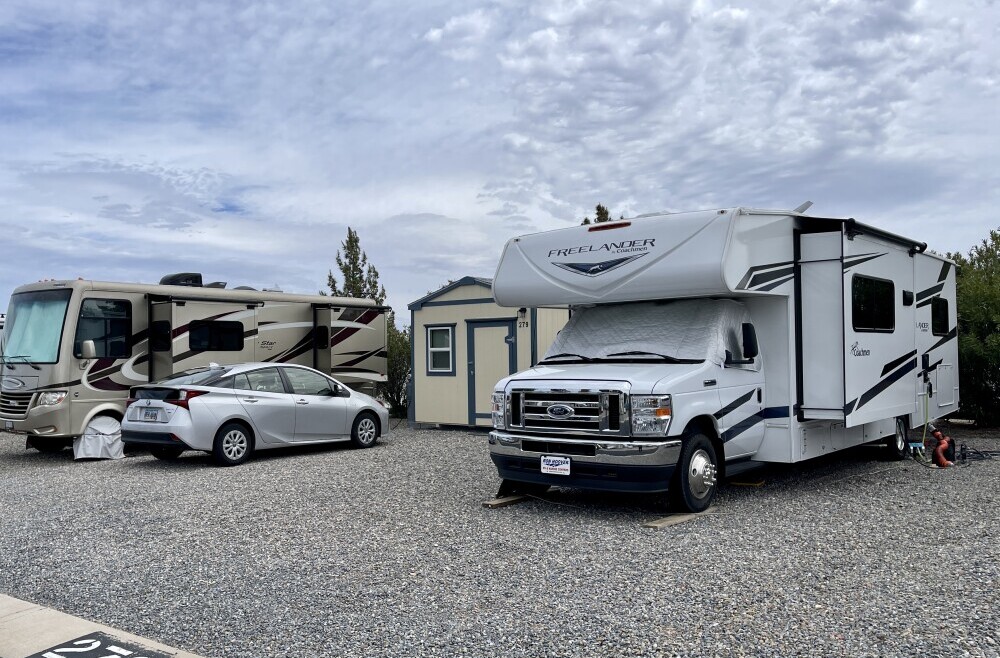
Owning a private RV lot isn’t just about having a permanent spot for your home on wheels. It’s like carving out a slice of peace amidst the bustling and sometimes unpredictable world of road travel. Imagine coming back from a long trip knowing you have your own cozy nook to unwind, not having to worry about the next RV park closure or lack of available spots during peak seasons.
The beauty of a private RV lot lies in its simplicity. It’s your personal getaway without the headache of maintaining a whole property. No mowing sprawling lawns or dealing with a leaking roof. It’s all about maximizing relaxation at your own pace. And guess what? You don’t have to share amenities like pools or game rooms with a crowd, because they’re all part of the package whenever you need a break.
Community is such a huge part of the RV lifestyle, and owning a lot helps root that connection. Get to know your neighbors and dive into social events that many RV park communities host. It’s easy to forge friendships and connections when you’re surrounded by people who share your love for the open road.
Speaking of amenities, they’re a real game-changer. Year-round access means you can plunge into that heated pool or unwind in the hot tub whenever it strikes your fancy. Game rooms offer a fun diversion, perhaps hosting a friendly game night or two. These aren’t just perks; they become part of your lifestyle.
Finally, owning a lot means you pick your favorite spot. Whether it’s close to a beloved family vacation spot or nestled near beautiful landscapes, it’s all about being where you want, when you want. That sense of ownership and choice changes everything.
The Pro Side – Why Buying an RV Lot Makes Sense
A place to relax and take a break – Owning an RV lot can bring a bunch of perks that make life on the road a whole lot easier. Picture this: you’ve just finished a long journey, and instead of searching for a spot to park, you pull straight into your own serene little haven. It’s yours, waiting to welcome you home, even if it’s just for a brief spell between adventures.
Potential lower costs – There’s the cost-saving angle too. With your own lot, say goodbye to those pesky storage fees when you’re off the road. And forget the thrill of last-minute reservations at packed RV parks. Over time, the savings on gas, reservation fees, and storage add up, helping you ease the strain on your wallet.
Customization – Think about the freedom to spruce up your slice of paradise. Whether it’s adding a small garden, a cozy pet area, or even a cute little structure for storage or relaxation, customizing your space is one of the biggest draws. It’s all about making it feel like home without the fuss of traditional property.
Rental income potential – Got the travel bug but also want to make a bit of cash? Renting out your RV lot is a solid option. Platforms similar to Airbnb have made it super easy to offer your lot to other travelers when you’re not using it. This way, it becomes not just a personal retreat but also a source of income.
A permanent “home base” – And for those who spend a good chunk of their time RVing, having a permanent base simplifies life’s practicalities. Scheduling medical appointments or dealing with other life essentials becomes a lot easier when you have a consistent address. The peace of mind that comes with being able to plan around a stable location is priceless.
Facing the Downsides – Challenges in Owning an RV Lot
Potential higher costs – Owning a private RV lot isn’t a golden ticket to easy living; it’s got a few hurdles too. First thing that often hits is the cost. Some lots are priced like a small house, with tags running anywhere from $25K up to a grand $800K. That’s a hefty chunk of change, akin to buying property in a hot real estate market.
Hidden costs – Then there’s the whole deal with the HOA fees and other hidden costs. You’ll get some amenities, for sure, but they can come with strict rules and heaps of paperwork. It’s essential to weigh these fees against what you’ll actually get out of the deal. Plus, don’t forget those property taxes – owning land doesn’t come tax-free and they can add up.
Less mobility – Another biggie is committing to one location. If you’re all about the nomadic lifestyle, sticking to one spot for longer stints can seem like trading freedom for something you didn’t quite sign up for. Check if you’re ready for less mobility before taking the plunge.
Market volatility – Also, the RV lot market isn’t immune to ups and downs. You might buy at a high and find out later that selling doesn’t recoup your costs. There’s no sure-fire way to guarantee your investment will swell in value, so consider if you’re okay with this kind of financial gamble.
Inconsistent community – And while community is a fantastic upside, the transitory nature of RV parks can make bonding tricky. With folks constantly coming and going, establishing lasting friendships isn’t always easy. Just keep in mind, the vibe of RV park life isn’t static and can change quicker than you might anticipate.
Strategic Considerations Before Investing
Before jumping into buying a private RV lot, there are key points to mull over. First off, consider the size of the lot—bigger tends to mean better resale value. It’s like real estate; a spacious lot offers more flexibility and appeal when it’s time to sell.
Check out the regulations around the lot, too. Make sure it’s not restricted to a specific type of RV. You want flexibility, especially if you’re considering renting it out in the future. Keeping options open in terms of guests could bring in more income.
Don’t shy away from pre-owned developed lots either. Sometimes these come with improvements that save you money and hassle in the long run compared to bare, undeveloped pads. Already-installed amenities can be a total win.
Always, always dig into the park’s reputation and the lot’s history. A bit of homework goes a long way in avoiding future headaches. Understand the ins and outs before dropping serious cash on your next home base away from home.
Popular RV Lot Ownership Locations
Florida (FL):
- Cost: RV lot prices in Florida vary widely, ranging from $25,000 to over $200,000, depending on location and amenities.
- Taxes: Property taxes in Florida are relatively low, averaging around 0.83% of the property’s assessed value.
- HOA Fees: Homeowners Association (HOA) fees can vary significantly, often covering maintenance and amenities. Some communities have seen increases in HOA dues, with reports of fees rising by up to 15% in parts of Florida.
- Amenities: Many Florida RV communities offer amenities such as swimming pools, clubhouses, and organized social activities.
Texas (TX):
- Cost: RV lot prices in Texas can range from $10,000 to $100,000, influenced by location and resort features.
- Taxes: Property taxes in Texas are higher, averaging around 1.69% of the property’s assessed value.
- HOA Fees: HOA fees vary, often covering common area maintenance and amenities.
- Amenities: Texas RV parks may offer amenities like golf courses, fitness centers, and organized events.
Arizona (AZ):
- Cost: RV lot prices in Arizona typically range from $20,000 to $150,000, depending on location and amenities.
- Taxes: Property taxes in Arizona are moderate, averaging around 0.60% of the property’s assessed value.
- HOA Fees: HOA fees can vary, often covering maintenance and amenities.
- Amenities: Arizona RV communities may offer amenities such as swimming pools, spas, and organized activities.
Other Notable Locations:
- California (CA): RV lot prices in California can range from $50,000 to over $200,000, influenced by location and amenities.
- South Carolina (SC): RV lot prices in South Carolina typically range from $20,000 to $100,000, depending on location and amenities.
- Nevada (NV): RV lot prices in Nevada can range from $30,000 to $150,000, influenced by location and amenities.
Personal RV Lot Ownership Story
My wife and I have personal experience owning and RV lot. In the fall of 2022 we purchased a lot at CT RV Resort in Benson, AZ. With economic uncertainty and the desire to have a fixed and safe place to land due to some unforeseen event we felt it was a good choice for us at the time.

Here’s the breakdown of the costs:
- Purchase: $33,000
- Association fee: $475/ ANNUAL
- CTRV Resort fee: $495/ ANNUAL
- Cochise County Property Taxes: Approximately $600/year
Improvements:
- 10×10 Shed: $5200
- Electricity to the Shed: $2000
- Mini-Split AC in the Shed: $700
We stayed on the lot in the winter time in our RV for two winters for an average of 4 months each. We had the option to rent our lot when we weren’t there but didn’t follow through with that. CT charges $700/month to rent an RV lot. So that cost would have been about $3000/year that we saved by owning the lot, Our yearly costs owning the lot were $1570/year so we came out ahead. When we sold the lot in the fall of 2024 we got $40,000 for it. So only $1100 over our investment in the lot.
In the end we enjoyed the lot and don’t regret the purchase. It gave us a great winter home base to decompress and relax. Plus there are many things to see and do in AZ. Saguaro National Park was a regular visit for us and we made it to Sedona for a long weekend.
Making an Informed Decision – Balancing Pros and Cons
So, here’s the deal: buying a private RV lot presents a unique mix of opportunities and challenges. It’s all about finding the right balance rather than jumping in headfirst without a plan. Weighing your options carefully could make all the difference.
Think about your lifestyle and what you value most about RVing. Is it the freedom to roam, or do you want a steady base with personal touches and potential rental income? If staying flexible is your jam, a permanent spot might not fit your routine. But if having your own spot feels like just the right amount of stability, then explore that option.
Expense-wise, calculate how owning a lot compares to your current travel costs. Factor in the potential savings on reservations, storage, and even gas. Don’t forget about those additional costs like HOA fees and property taxes—knowing your complete financial picture helps prevent surprises.
Chatting with real estate experts or other seasoned RV lot owners might offer valuable insights. They can help you navigate the finances, property management, and those tricky market trends that might be hiding around the corner.
Finally, whether it’s a major investment or a lifestyle choice, make sure it fits your goals and ambitions. It might end up being the perfect retreat that offers both relaxation and financial benefits, or you might decide to stick with the thrill of constant travel. Either way, it’s about choosing what works best for you and your journey.
About the Author
Jim has 3.5 years of experience living and traveling full-time in an RV. From “moochdocking” with family and friends to navigating the financial intricacies of RV life, he shares practical advice rooted in firsthand experience. His goal is to help fellow adventurers embrace the RV lifestyle with confidence and ease.

This is such an insightful article! I love how it breaks down both the perks and the challenges of RV lot ownership so clearly. The point about customization really stood out to me having the freedom to create a personalized retreat is a huge draw, especially for those who see their RV as more than just a mode of travel. However, the mention of hidden costs like HOA fees is a great reality check.
It’s easy to get swept up in the idea without fully considering these ongoing expenses. Overall, this post is a fantastic resource for anyone contemplating this lifestyle. It strikes a perfect balance between inspiration and practicality!
Thank you so much for your thoughtful comment! I’m glad the post resonated with you. You’re absolutely right—customizing an RV site can be such an exciting aspect of ownership, and it’s great to hear that point stood out to you. And yes, it’s important to keep those hidden costs in mind when making such a big decision. I appreciate your feedback, and I’m happy to know that the article provided a good balance of inspiration and practical advice!